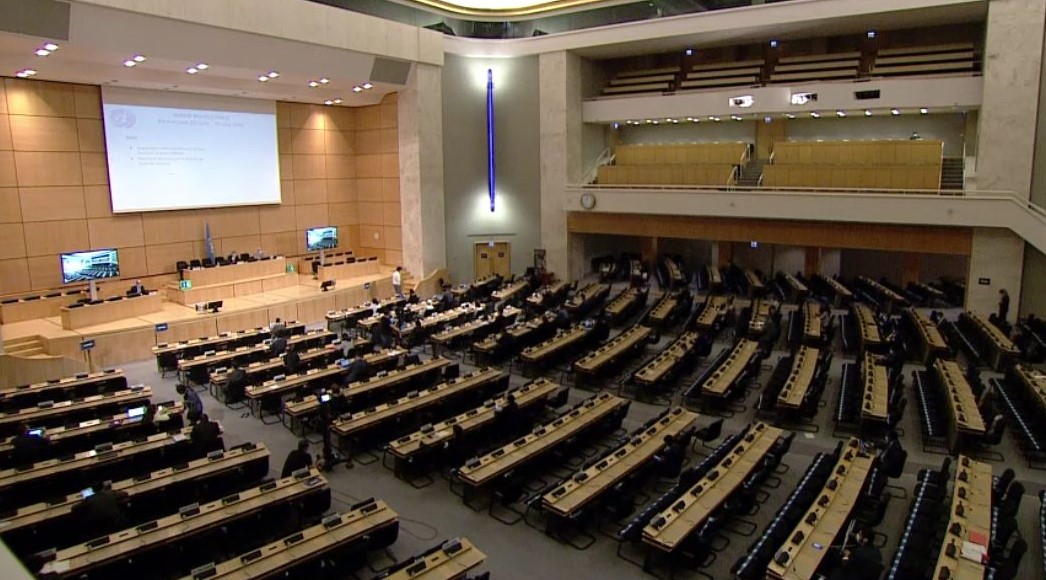United Nations Human Rights Council
60th Regular Session
Statement by the International Commission of Jurists delivered during the Item 3 General Debate on 19 September 2025
Mister President,
As raised by the High Commissioner in August of this year, the Egyptian authorities continue to subject human rights defenders, activists, lawyers, journalists, peaceful protesters and political opponents to prolonged arbitrary detention for the mere exercise of their rights to freedom of expression and assembly. One of the ways in which the authorities carry out this practice systematically is through the use of so-called case rotation, whereby new but similar charges are brought against individuals when they are about to complete their prison sentences or as they reach the maximum legal period of pre-trial detention, thus preventing their release. Moreover, such new charges arise from the same factual bases upon which people were originally charged.
The ICJ also remains extremely concerned at the law enforcement authorities’ systematic perpetration of enforced disappearances against detainees with impunity, often prior to or during periods of prolonged detention that was already arbitrary in nature. The authorities’ widespread practice of enforced disappearances is enabled by Egypt’s failure to enact domestic legislation to criminalise the practice and by provisions of Egypt’s “Counter-Terrorism” law that allow law enforcement authorities to detain suspects incommunicado or up to 28 days without review of the legality of detention by an independent court.
Additionally, despite Egypt’s claim during its 2025 Universal Periodic Review that it had implemented a recommendation to establish an independent authority to investigate allegations of enforced disappearance, Egypt systematically fails to investigate any such complaints, let alone hold alleged perpetrators to account. Moreover, Egypt’s new draft Criminal Procedure Code, if enforced as currently formulated, would perpetuate law enforcement authorities’ impunity by preventing victims and their families from filing complaints directly with an investigating judge — allowing only public prosecutors to initiate an investigation into the conduct of public officials — and by severely limiting the rights of victims to appeal public prosecutors’ decisions not to initiate investigations into cases of alleged enforced disappearances.
Tellingly, Egypt features among the recipients of the highest number of communications in the 2025 annual reports of both the Working Group on Arbitrary Detention and the Working Group on Enforced or Involuntary Disappearances.
Emblematically, despite this Council’s Special Procedures’ repeated calls to immediately release him — including most recently in January of this year by the Special Rapporteur on the situation of human rights defenders — Egypt continues to arbitrarily detain human rights defender Ibrahim Metwally solely for his human rights activism. This month marked the eight-year anniversary of Mr. Metwally’s initial arrest on spurious terrorism charges as he attempted to travel from Cairo to Geneva to attend a session of this Council’s Working Group on Enforced or Involuntary Disappearances. Two years into his detention, he was forcibly disappeared for 20 days and then rotated successively into two additional cases on charges similar to the ones in connection with which he had been arrested in the first place.
Mister President, the ICJ calls on this Council and Member States to once again urge Egypt to:
- End the practice of case rotation to facilitate prolonged arbitrary pre-trial detention, including against human rights defenders, activists, lawyers, journalists, peaceful protesters and political opponents;
- Immediately and unconditionally release Ibrahim Metwally and drop all charges against him;
- Enact legislation to criminalize enforced disappearances;
- Initiate independent and impartial investigations into all allegations of enforced disappearances; and
- Refrain from enacting the flawed draft Criminal Procedure Code.





